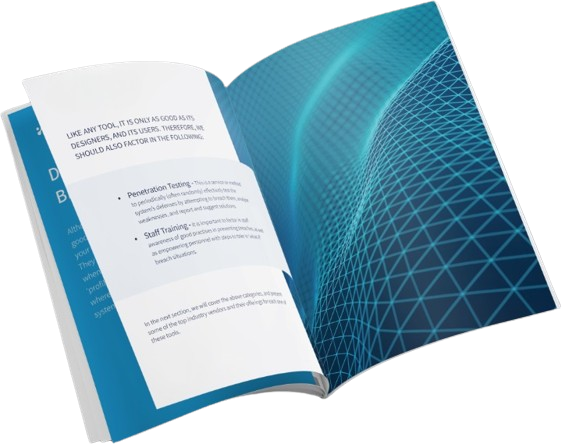Have you ever wondered how lenders assess the creditworthiness of your business? Understanding the underwriting process is crucial for ensuring that your business is seen as a reliable investment.
As you navigate the complexities of creditworthiness and underwriting, you’ll gain valuable insights into the factors that influence lenders’ decisions and discover actionable strategies to enhance your business’s financial stability.
Join us as we delve into the underwriting process, uncovering the key steps that could significantly impact your access to essential financing for your business.
Key Takeaways
- Creditworthiness is crucial for businesses seeking financing as it impacts their ability to secure funding and obtain favorable terms.
- Factors such as credit score, payment history, debt-to-income ratio, and financial statements are used to assess creditworthiness.
- A strong credit profile increases the chances of obtaining financing and lower interest rates.
- Underwriting is a comprehensive assessment of a business’s financial health, stability, and repayment capacity, and plays a crucial role in determining creditworthiness and loan approval.
Importance of Creditworthiness in Business
Creditworthiness in business is a crucial factor that directly impacts your ability to secure financing solutions tailored to your specific needs. For startups, establishing creditworthiness is particularly challenging due to limited operating history and financial data. Lenders rely on creditworthiness assessment to evaluate the risk of extending credit to your business. A strong credit profile not only increases your chances of obtaining financing but also allows you to qualify for better terms and lower interest rates.
Lenders assess creditworthiness by reviewing your business and personal credit scores, payment history, debt-to-income ratio, and business financial statements. As a startup, demonstrating responsible financial management and establishing a positive credit history are essential steps in building creditworthiness. Additionally, maintaining a healthy cash flow and keeping business and personal finances separate can positively impact your creditworthiness.
Improving creditworthiness for startups involves proactive measures such as making timely payments, reducing outstanding debt, and monitoring credit reports for inaccuracies. Seeking out trade credit relationships and securing a business credit card can also contribute to building creditworthiness. As your business grows, demonstrating consistent revenue and profitability will further enhance your creditworthiness and position you favorably for financing opportunities.
Understanding the significance of creditworthiness in business is crucial for startups seeking to secure funding for growth and expansion. By actively managing and improving creditworthiness, you can strengthen your financial position and access a wider range of financing solutions to support your business objectives.
Factors Affecting Creditworthiness
Your credit score plays a crucial role in determining your creditworthiness. A higher credit score indicates to lenders that you’re more likely to repay your debts, leading to better credit terms and lower interest rates.
Additionally, your financial history, including past loans, payment history, and outstanding debts, also has a significant impact on your creditworthiness.
Credit Score Importance
A crucial determinant of your business’s creditworthiness is the credit score, which is influenced by various factors such as payment history, credit utilization, and length of credit history. Your credit score plays a significant role in the creditworthiness evaluation conducted by lenders. By understanding the key credit score factors, you can take proactive steps to improve your business’s creditworthiness and increase the likelihood of securing favorable financing options. The table below outlines the primary factors that impact your credit score:
| Credit Score Factors | Description |
| Payment History | Record of on-time payments and delinquencies |
| Credit Utilization | Proportion of credit used compared to limit |
| Length of Credit History | Duration of credit accounts and activity |
Analyzing and addressing these factors can have a substantial impact on your business’s creditworthiness, providing greater access to financing solutions.
Financial History Impact
Analyzing the financial history impact on your business’s creditworthiness provides a deeper understanding of the factors affecting your access to favorable financing options.
When evaluating creditworthiness, lenders conduct a thorough financial history analysis to assess your business’s ability to manage debt and meet financial obligations.
This evaluation includes scrutinizing your business’s past credit utilization, payment history, and overall financial management.
A strong financial history, characterized by timely payments, responsible debt utilization, and consistent positive cash flow, can significantly enhance your creditworthiness.
Conversely, a history of late payments, high debt levels, or financial mismanagement can adversely impact your creditworthiness, potentially leading to higher interest rates or limited access to financing.
Understanding the pivotal role of financial history in creditworthiness evaluation can help you make informed decisions to strengthen your business’s financial standing.
Understanding Underwriting in Business
Understanding the underwriting process is crucial for businesses seeking funding solutions, as it plays a pivotal role in determining creditworthiness and access to financing products. The underwriting process involves a comprehensive assessment of your business’s financial health, stability, and ability to repay the requested funds. It differs from credit evaluation in that it delves deeper into various aspects of your business to determine the level of risk associated with lending to you.
Here are three key aspects of understanding underwriting in business:
- Risk Assessment: Underwriting involves a thorough risk assessment, considering factors such as your business’s financial performance, cash flow, industry trends, and market conditions. This assessment helps lenders gauge the likelihood of your business repaying the loan.
- Customized Funding Solutions: Through underwriting, lenders can tailor funding solutions to meet your specific business needs. By understanding your business’s unique circumstances, underwriters can recommend financing products that align with your requirements and long-term goals.
- Creditworthiness Enhancement: The underwriting process provides an opportunity for businesses to enhance their creditworthiness. By demonstrating strong financial management practices and a solid repayment capacity, businesses can improve their standing and access more favorable financing terms.
Understanding underwriting in business empowers you to present a compelling case to lenders, showcasing your business’s creditworthiness and suitability for various financing products. It’s a critical step in securing the funding needed to support and grow your business.
Role of Underwriting in Loan Approval
When it comes to the role of underwriting in loan approval, it’s essential to understand the underwriting criteria overview, risk assessment process, and credit evaluation factors.
These aspects play a crucial role in determining the creditworthiness of your business and ultimately influence the approval of your loan application.
Underwriting Criteria Overview
The underwriting process plays a crucial role in determining the creditworthiness of businesses seeking financing solutions.
To evaluate the creditworthiness of a business, underwriters use a set of specific criteria to assess the risk and determine the likelihood of loan approval. This includes analyzing the business’s financial statements, credit history, and cash flow to ensure that the business has the capacity to repay the loan.
Additionally, underwriters consider the purpose of the loan and how it aligns with the business’s operations and growth plans.
Moreover, the underwriting process involves a thorough review of the business’s industry, market conditions, and competitive landscape to gauge the overall viability and sustainability of the business.
Risk Assessment Process
The underwriting process serves as a critical factor in evaluating the creditworthiness of businesses seeking financing solutions, particularly through its role in conducting a comprehensive risk assessment for loan approval. The underwriting process involves several steps to assess the creditworthiness of a business. This table outlines the underwriting process steps and their significance in creditworthiness evaluation:
| Underwriting Process Steps | Significance in Creditworthiness Evaluation |
| Financial Analysis | Evaluates the financial position and performance of the business. |
| Risk Assessment | Identifies potential risks associated with the loan and the business. |
| Collateral Evaluation | Assesses the assets that can be used as collateral for the loan. |
| Credit Decision | Determines whether the business qualifies for the desired financing. |
Through these steps, underwriting plays a crucial role in thoroughly evaluating the creditworthiness of businesses, enabling lenders to make informed decisions regarding loan approvals.
Credit Evaluation Factors
In assessing the creditworthiness of businesses, underwriting plays a pivotal role in scrutinizing various factors to determine eligibility for loan approval. The credit evaluation process involves a thorough analysis of specific creditworthiness factors, including:
- Financial History: Underwriters assess the financial history of a business, including credit scores, payment history, and debt-to-income ratios, to gauge its ability to manage and repay debt.
- Business Performance: The underwriting process involves evaluating the business’s performance, such as revenue trends, profitability, and cash flow, to understand its financial stability and capacity to meet financial obligations.
- Industry and Economic Trends: Underwriters consider industry-specific and broader economic trends to gauge the potential impact on the business’s financial health and ability to repay the loan.
Improving Creditworthiness for Better Underwriting
Improving your creditworthiness is crucial for securing better underwriting terms in the financing process. To enhance your creditworthiness and improve loan eligibility, consider implementing certain strategies.
Start by reviewing your credit report for any errors or inaccuracies. Dispute any discrepancies and ensure that your report is up to date. It’s also important to make timely payments on existing debts and keep your credit card balances low. Lenders often assess your credit utilization ratio, so maintaining a utilization rate below 30% can positively impact your creditworthiness.[1]
Additionally, refrain from opening multiple new credit accounts within a short period, as this can signal financial distress and may lower your credit score. Building a positive credit history takes time, so be patient and consistently demonstrate responsible financial behavior.
Furthermore, diversifying your credit mix can contribute to a more favorable credit assessment. Having a combination of installment loans, such as a mortgage or auto loan, and revolving credit, like credit cards, showcases your ability to manage various types of credit.
Lastly, seek professional guidance from reputable credit counselors or financial advisors. They can offer personalized advice and assist in developing a tailored plan to improve your creditworthiness. By proactively addressing these factors, you can bolster your credit profile, thereby increasing your chances of securing favorable underwriting terms for business financing.
Underwriting Process for Small Businesses
Enhancing your creditworthiness is a fundamental step in navigating the underwriting process for small businesses seeking financing. Understanding the underwriting process and its role in loan approval is crucial for improving your chances of securing the necessary funding.
The underwriting process for small businesses involves a detailed risk assessment to determine the creditworthiness of the business and its ability to repay the loan. Here are three essential aspects to consider:
- Risk Assessment: Underwriters assess the risk associated with lending to your business by carefully evaluating factors such as your credit history, business financials, and industry trends. This assessment helps determine the likelihood of your business repaying the loan, influencing the approval decision.
- Documentation and Verification: Underwriters require thorough documentation and verification of your business’s financial information, including tax returns, bank statements, and financial statements. Providing accurate and complete documentation is crucial to demonstrate your business’s financial stability and repayment capability.
- Decision Making: The underwriting process culminates in a decision regarding the approval and terms of the loan. Underwriters weigh various factors to make an informed decision, including the risk assessment, business financials, and the purpose of the loan.
Understanding the underwriting process for small businesses is essential for improving your creditworthiness and increasing the likelihood of securing financing. By comprehending the role of underwriting in loan approval and the risk assessment process, you can strategically position your business to meet the underwriters’ criteria and enhance your chances of obtaining the necessary funding.
Impact of Creditworthiness on Financing Options
To secure the best financing options for your business, it’s essential to understand how your creditworthiness directly impacts the lending opportunities available to you. Your creditworthiness has a significant impact on the type of financing options that will be available to you. Lenders evaluate your creditworthiness to determine the level of risk involved in extending credit to your business. A strong credit profile can open doors to a wider range of financing options, including lower interest rates and higher credit limits. On the other hand, a lower credit score may limit your options and result in higher interest rates or less favorable terms.
Creditworthiness evaluation is a critical factor in determining the financing options that will be accessible to you. Lenders assess your creditworthiness by reviewing your credit history, payment history, outstanding debts, and the length of your credit history. Additionally, they may consider your business’s financial statements and cash flow to gauge your ability to repay any borrowed funds.
Understanding how these factors influence your creditworthiness can help you take proactive steps to improve your financial standing and increase your access to better financing options.
Utilizing Underwriting to Secure Funding
When evaluating your creditworthiness for financing options, the underwriting process plays a crucial role in determining your eligibility and securing the necessary funding for your business. Understanding how underwriting works and the criteria used for analysis can significantly impact your ability to secure funding.
Here’s how you can utilize underwriting to secure the funding you need:
- Underwriting Process Explained
- Gain a comprehensive understanding of the underwriting process, including the assessment of your creditworthiness, financial stability, and ability to repay the loan. This insight will help you prepare and present a strong case to potential lenders.
- Underwriting Criteria Analysis
- Analyze the specific criteria that lenders use during the underwriting process. This may include factors such as credit history, cash flow, collateral, and industry risk. By understanding these criteria, you can strategically position your business to meet or exceed the underwriting standards.
- Strategic Preparation
- Utilize the knowledge of the underwriting process and criteria to strategically prepare your business for funding. This may involve improving your credit score, optimizing your financial statements, or securing additional collateral. By aligning your business with underwriting requirements, you can enhance your chances of securing the funding you need.
Frequently Asked Questions
What Are Some Common Mistakes That Businesses Make That Can Negatively Impact Their Creditworthiness?
Common mistakes in managing finances can negatively impact your creditworthiness. These include late payments, high credit utilization, and excessive debt. These missteps may lead to a lower credit score, making it harder to secure funding.
To improve creditworthiness, it is important to focus on timely payments, keeping credit utilization low, and managing debt responsibly. By avoiding these common pitfalls and demonstrating financial responsibility, you can strengthen your creditworthiness for future financing needs.
Are There Any Alternative Financing Options Available for Businesses With Lower Creditworthiness?
When considering alternative financing for businesses with lower creditworthiness, it’s important to explore various credit options and risk assessment. Understanding the credit repair process can also be beneficial.
How Does the Underwriting Process Differ for Small Businesses Compared to Larger Corporations?
When it comes to the underwriting process, small businesses and larger corporations have distinct differences.
For small businesses, underwriting may focus more on the personal credit history of the business owner and the overall financial health of the business.
Larger corporations often undergo more complex underwriting, considering a wider range of financial metrics and historical performance.
Both small and large businesses can benefit from tailored creditworthiness strategies and various financing options to meet their specific needs.
What Are Some Strategies That Businesses Can Use to Improve Their Creditworthiness in a Relatively Short Amount of Time?
To improve your creditworthiness quickly, there are several strategies you can employ.
Firstly, focus on reducing your credit utilization. This means keeping your credit card balances low and paying off debt as much as possible.
Secondly, make sure to pay your bills on time. Late payments can have a negative impact on your credit score, so it’s important to stay current with all of your payments.
Another helpful step is to dispute any errors on your credit report. Mistakes happen, and these errors could be dragging down your credit score. By correcting them, you can improve your creditworthiness.
Additionally, consider becoming an authorized user on someone else’s creditworthy account. This can help you benefit from their positive credit history and boost your own score.
Lastly, try to diversify your credit mix. Having a mix of different types of credit, such as credit cards, loans, and mortgages, can show lenders that you can handle different types of financial responsibilities.
Can Businesses With Limited Credit History Still Qualify for Financing Through the Underwriting Process?
Yes, businesses with limited credit history can still qualify for financing through the underwriting process. By focusing on credit building and financial planning, you can demonstrate your commitment to responsible financial management.
Lenders consider risk assessment and credit evaluation when reviewing applications, so showcasing your business’s potential and outlining a clear plan for repayment can improve your chances of approval.
It’s important to communicate your dedication to building credit and managing finances effectively.
Final Thoughts
Now that you have gained insight into the intricacies of creditworthiness and underwriting, you can navigate the financial landscape with confidence.
By understanding the factors that affect your creditworthiness and the role of underwriting in the loan approval process, you have the tools to improve your business’s financial stability. Visualize your path to success as a well-underwritten bridge, providing a strong foundation for securing the funding needed to fuel your business growth.
[1] https://www.equifax.com/personal/education/debt-management/articles/-/learn/credit-utilization-ratio/



